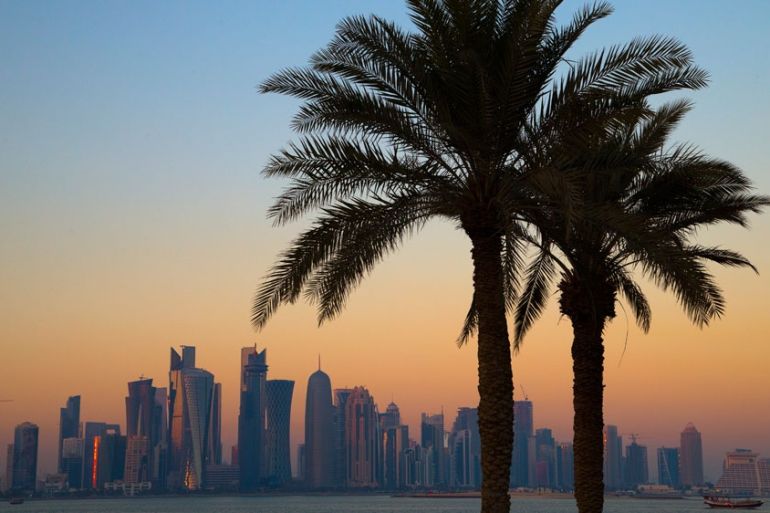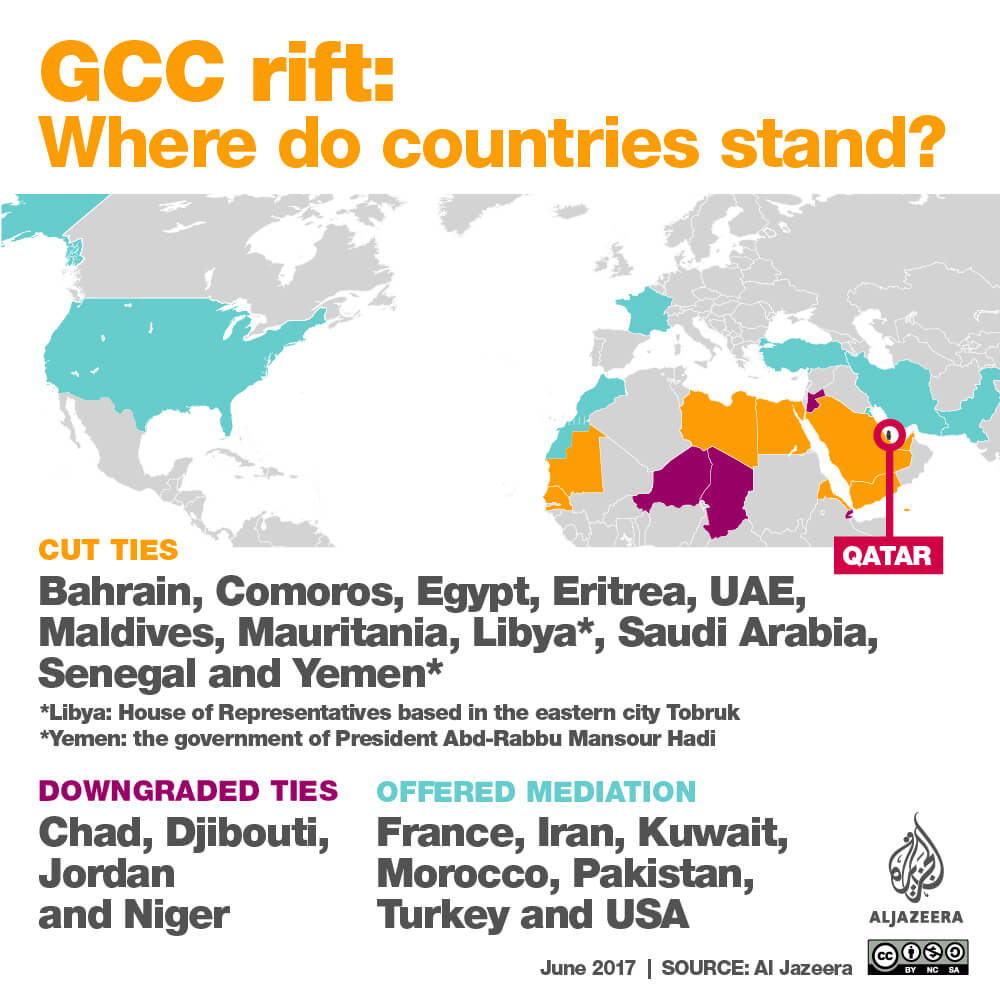Infographic: Qatar diplomatic crisis
Who are the major players in the Gulf diplomatic rift?

Gulf Cooperation Council (GCC) members Saudi Arabia, the UAE and Bahrain – along with Egypt – severed ties with Qatar on June 5, accusing it of fomenting regional unrest, supporting “terrorism” and getting too close to Iran – allegations which Qatar strongly denies.
Several other countries also cut or downgraded their ties with Qatar in the following days.
Keep reading
list of 4 itemsQatar emir condemns ‘genocide’ in Gaza, urges ceasefire at GCC summit
‘Enduring commitment’: Key takeaways from US-GCC joint statement
Analysis: Efforts to end Assad isolation gather speed after quake
Saudi Arabia, the UAE and Bahrain also imposed an air, sea and land blockade on Qatar, halting Qatar Airways operations. Overall, 18 destinations in the region are now out of bounds for Qatar Airways, which has also been forced to close its offices in Saudi Arabia and the UAE.
Saudi Arabia’s closure of Qatar’s only land border means more of the country’s food has to be brought in by air.
Qatar imported the vast majority of its food from its Gulf Arab neighbours before the diplomatic shutdown, and has been talking with Iran and Turkey to secure food and water supplies since the crisis broke out.
Families have been affected – including those with a Qatari spouse – and students in Qatar from all over the GCC have been caught up in the crisis.
Furthermore, the UAE, Saudi Arabia, and Bahrain have threatened sanctions against people who criticise moves taken by their governments against Qatar and has blocked access to Al Jazeera.
The GCC rift followed US President Donald Trump’s visit to Saudi Arabia, where he met leaders of the Arab world.
France, Iran, Kuwait, Morocco, Pakistan, Turkey and the United States have offered to mediate.
